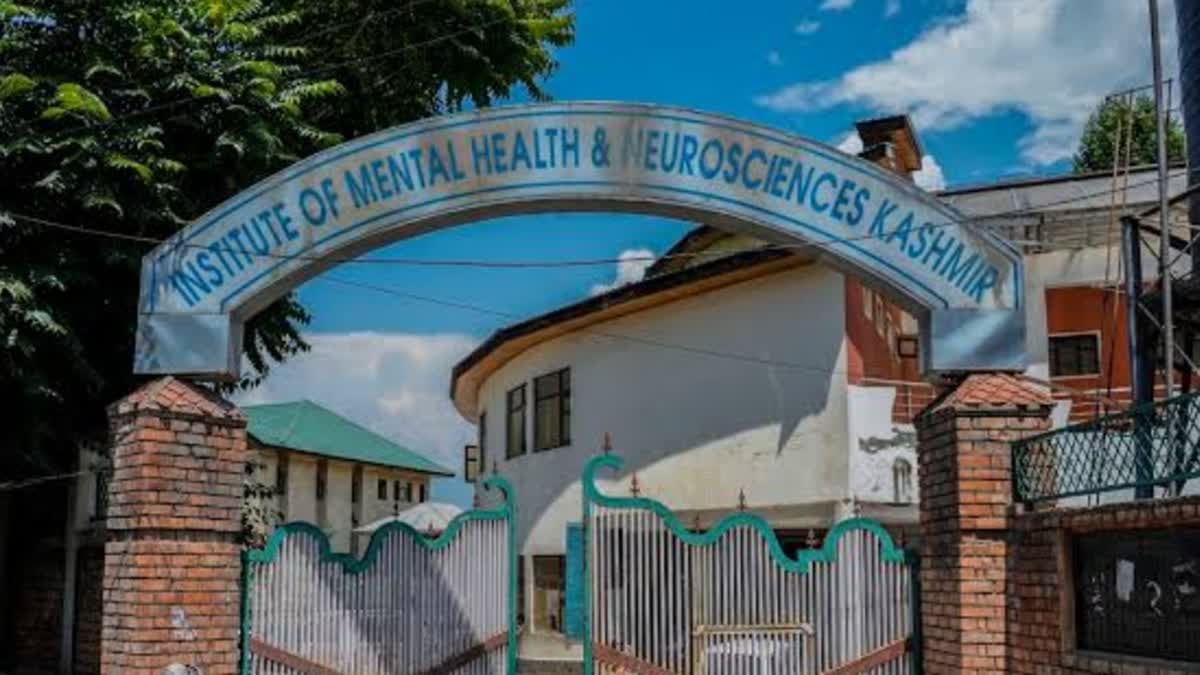Srinagar:With more than one percent of the country's population affected by the mental illness Schizophrenia, in Jammu and Kashmir the affected population is predominantly young falling in the age group of 18-40 years, a leading psychiatrist has said.
Schizophrenia is a mental illness that severely affects a person's way of thinking, understanding, reacting and seeing the world. A person forgets to distinguish between real and unreal life and because of unregulated emotions, it becomes difficult for him to live a normal life. This mental illness affects the young more than the old.
Dr Arshad Hussain, senior professor at Institute of Mental Health and Neuro sciences stated that the rate of people affected by this disease is the same all over the world. According to some surveys the rate of these patients in the valley is 0.8 percent, he added.
Out of the affected population, only 20 to 30 percent of the patients have reported the disease so far, Arshad said. Psychiatrists believe that early treatment can help 90 percent of affected patients live a normal life.
Over the causes, Dr Arshad said, “The reason for this can be genetic or environmental”.
“In Jammu and Kashmir, out of the affected population, 40% are between 18 to 40 years of age, 13% of 41 to 60 years of age and 12% of people above 60 years of age. It is a serious mental illness that affects people's thinking, behavior and emotions,” he added.
Dr. Arshad further said that the symptoms of Schizophrenia may be that the patient's interest, energy, and feelings are reduced.
“It becomes very difficult for the patient to bathe, wash, clean or change clothes, the patient is afraid of meeting people, the patient hears different sounds, in the absence of an object or person,” he said.
He said that the symptoms of this psychological disorder appear after the age of 18 and it is not easy to identify these symptoms in children. Only 30 to 40 percent of these patients are registered and are being treated while most of them are homeless, he added.
Schizophrenia is treated with medication and psychotherapy. People with severe symptoms or those who are at risk of harming themselves or others may need to stay in hospital to keep their condition under control.
Read more:
- World Schizophrenia Awareness Day 2024: Fostering an Inclusive, Compassionate Society for All
- Two Brain Systems Found Malfunctioning in People with Psychosis: Study
